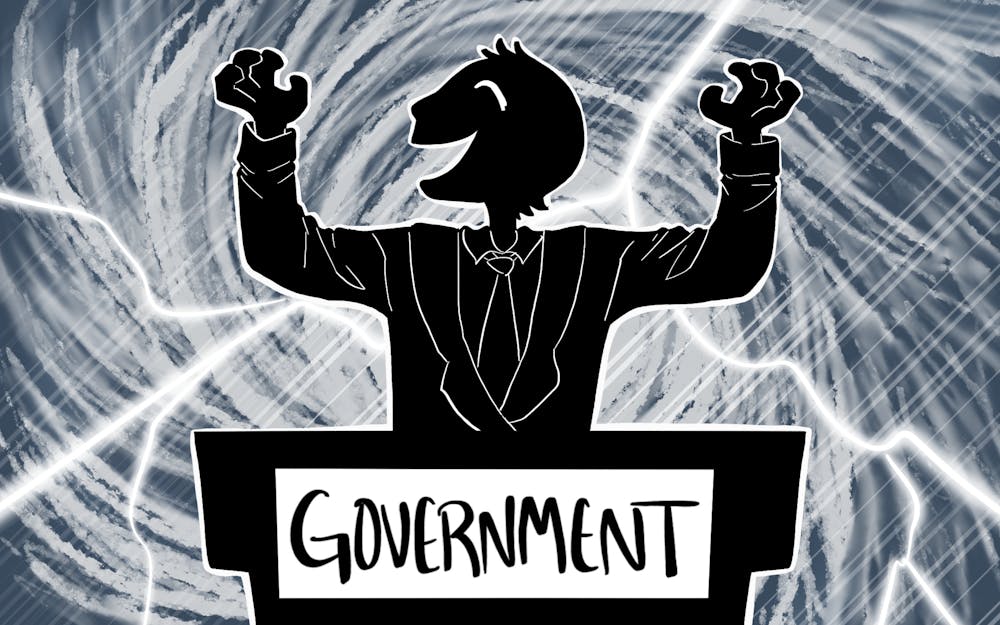Here’s a sentence that could make you instantly viral on TikTok right now: I would like to thank Beyonce for her support in writing this article to expose Joe Biden’s deliberate manipulation of the clouds to create Hurricane Milton and wipe out the state of Florida, thus stealing the election for Democrats.
Confused? Good. Hopefully you haven’t been on TikTok as much as I have in the last month. Unfortunately, some Americans would likely nod their heads in agreement and understanding of my opening paragraph.
Even more unfortunately, that can be attributed to the sinister power of social media algorithms to spread misinformation and allow public officials to endorse misinformation and conspiracy theories.
In times of pending natural disasters and political instability, it makes sense that people become far more vulnerable to misinformation. It is obviously nothing new; however, social media and the internet simply allows it to harmfully permeate ordinary American society at every level.
No longer do conspiracy theories or misinformation feel like something just your crazy uncle may fall victim too, but also something the person sitting next to you in class, your little brother or your grandparents might believe. It is easy for some people to explain current events because they saw something on TikTok, Facebook or perhaps even heard from their local elected representative.
On Oct. 3, between the hit of Hurricanes Helene and Milton, Marjorie Taylor Greene, the Republican representative of Georgia’s 14th district, wrote on X, “Yes they can control the weather. It’s ridiculous for anyone to lie and say it can’t be done.” While the “they” she refers to is ambiguous, it seems to refer to a sort of all-powerful elite entity, perhaps the government.
The post got nearly 44 million views, with 41,000 likes and 20,000 reposts.
Her post and its timing was a deliberate attempt to erode the already compromised trust the public has in government and public officials. To be clear, humans cannot directly create nor control the path of hurricanes, not to mention that the most recent ones were likely only worse and closer together due to the effects of climate change.
Beyond claims of the government creating or controlling the hurricanes, there are also theories being spread that accuse the Federal Emergency Management Agency of stealing people’s belongings or attempting to seize their damaged property and land.
Though some of the absurd theories being spread are fun to laugh at and may appear obviously ridiculous, misinformation is deeply harmful to communities through undermining the local, state, and federal governments, and creating misunderstandings of important information and science. In a disaster situation such as a hurricane or earthquake, these conspiracy theories may cause people to ignore evacuation orders or decline federal aid and assistance — basically anything that the government is doing for the genuine good and safety of the public.
In everyday life, misinformation and conspiracy theories can lead people to be less likely to vote, less likely to mitigate environmentally harmful behaviors and less likely to engage in healthy practices due to the underestimation of risk.
They essentially destroy our ability to productively participate in social and political change processes by creating a foundation of distrust and paranoia concerning any information produced by established government and media organizations.
This is not to say the government or media have never acted in manners deserving of criticism,; however, we should be focused on instances in which there are trustworthy sources of information to back this up and criticize them in a meaningful way.
Many of the conspiracy theories spreading on TikTok, such as the idea that the government creates storms to weaken the Republican voter base or make Democratic candidates appear better, have absolutely no logical evidence to support them, and would likely only make a person who believes them feel fully disillusioned and powerless concerning civic engagement.
The government exists to serve the public, and we can and should hold them accountable, but in order for communities to stay calm, organized, and prepared, it is necessary for them to have trust in local and federal levels of government. These entities, many of which are nonpartisan, help deliver essential and free scientific analysis and expert recommendations to the entire public, with no perverted motivations of profit.
When communities are distracted by believing the government is evil and intentionally misleading them, it prevents them from focusing on the real dangers of a natural disaster, which one does not have long to react to or prepare for.
In the new normal of TikTok and Facebook conspiracy doom scrolling, as well as politicians who make frequent inflammatory, false statements simply to rally constituents or stir chaos, we must actively fight the spread of misinformation that undermines the principles of democracy, civic education and community care.
Leila Faraday (she/her) is a junior studying policy analysis with minors in geography and urban planning and community development.






